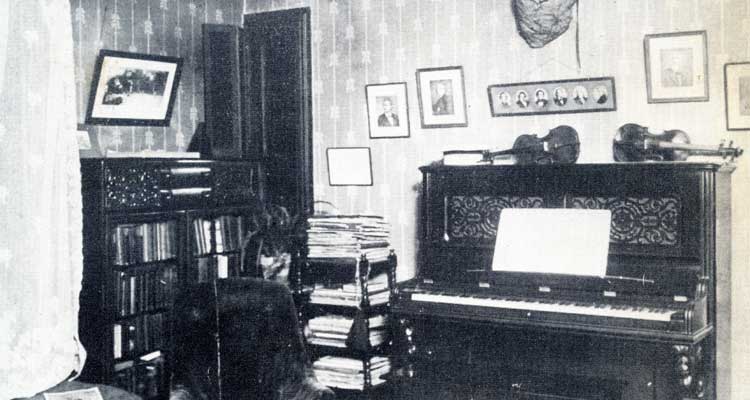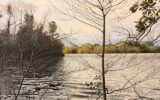For 32 years, the Queen Anne-style house at 241 Jefferson Avenue, one of several nearly identical late-Victorian houses surviving from a once greater row along Jefferson’s 200 block, was the residence of Robert Smith Phifer (1852-1910), his wife and children.
Over the last quarter of the 19th century, up to his death on Jefferson Avenue in 1910, Professor
Phifer embodied all things musical. Beginning at age 16, this North Carolina native, received much of his early training in literature and music at the great conservatory in Leipzig, Germany, revered for nurturing both the genius of J.S. Bach (1685-1750) and his 19th-century champion, Felix Mendelssohn (1809-1847), among many others musical prodigies.
In the mid 1870s, Phifer visited Danville on a short trip with his father to sell pianos at a music fair. Danville charmed the youthful Phifer, and he returned. Here he married Isabella Hunt McGehee, who grew up just downriver from Danville on the farm “Burleigh” in Semora, North Carolina. In 1878, the couple returned from Charlotte to Danville, when the school known today as Averett University (then Roanoke Female College) hired the young Leipzig graduate to teach music at the school and eventually become the founding head of Averett’s Music Department. And, it was Phifer who hired the aspiring but, at the time, itinerant British-born musician Frederick Delius in the mid-1880s. Delius (1862-1934) taught under Phifer’s watch between 1885-86. Upon Delius’ return to his native England, followed by his own stint at Leipzig, Delius came to be regarded as among Britain’s great composers of the late 19th and early 20th centuries.
Following Professor Phifer’s distinguished career of over 15 years at Averett, he taught for a short time in the mid-to-late 1890s at (what became) Stratford College. In 1897, Professor Phifer’s old friend and protégé Delius returned to Danville for a lively, somewhat humorous, concert appearance at the school. Delius and Phifer continued to correspond until the Professor’s death in 1910, just after the British composer had dedicated to his old mentor his revised 1909 score of Appalachia, a landmark choral symphony inspired in part by his time in Danville and the Virginia/North Carolina Piedmont. Professor Phifer’s Danville legacy extends well beyond his “brush” with Delius. Rather, it was the Professor’s profound effect on Danville’s musical life, writ large, and over many decades, that motivated appreciative former students, friends and colleagues in the community to erect in 1913 a small, but important, “monument” to him on the grounds of the Sutherlin Mansion. Although this garden ornament, a sundial, later was relocated to Phifer’s gravesite, it survives as evidence of area citizens’ heartfelt affection for Danville’s irreplaceable musical mentor and friend.









